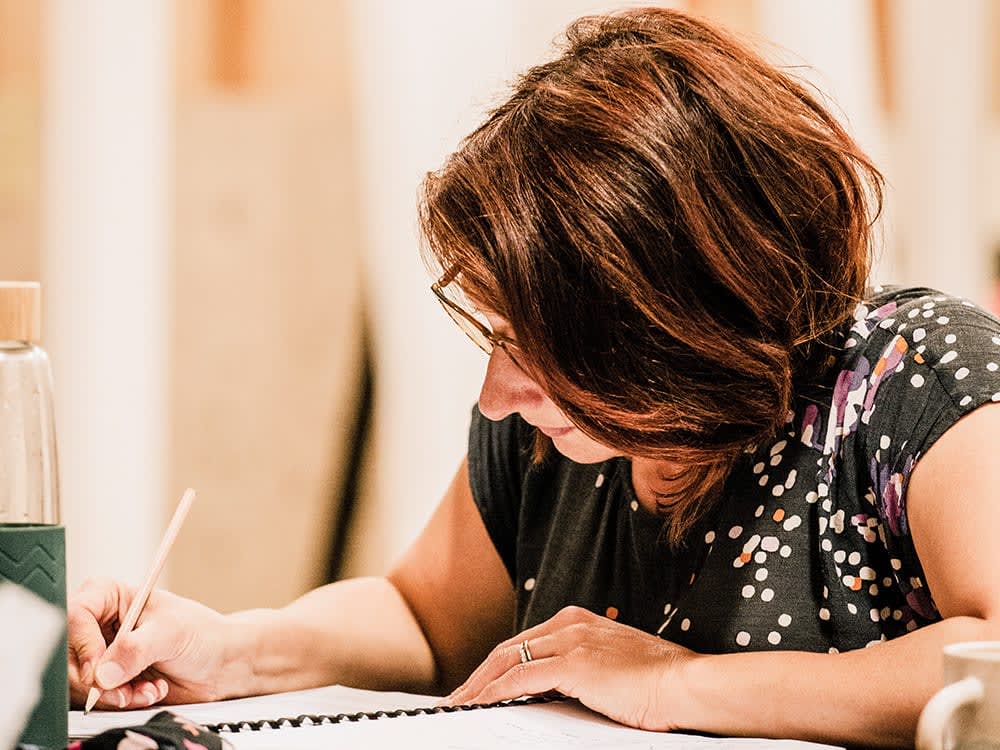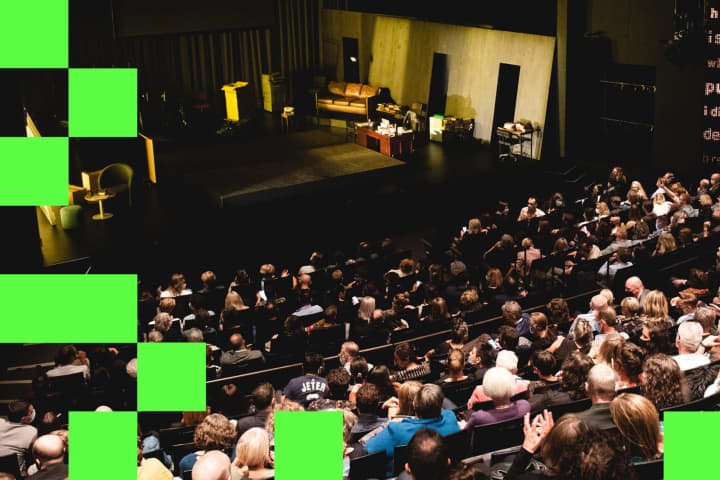We are in the midst of a revolution, reviewing and redressing the power imbalances that have embedded themselves in our culture. It is no wonder then, that a play like Sexual Misconduct of the Middle Classes finds its place on our stages. It explores the power dynamics between a professor (Jon) and his student (Annie) and the assumed and invisible lines that are crossed because of privilege, entitlement, celebrity and structural authority. What writer Hannah Moscovitch masterfully navigates are the thresholds crossed in a sexual relationship.
The idea of ‘threshold’ is something that excited me as a director. I was keen to interrogate the space of possibility that Moscovitch opens up for us to explore. It has been powerful to metaphorically and literally explore thresholds in the rehearsal room, be they as entrances and exits, doors, gateways and character choices. The play as a site of threshold has been the most exciting and fruitful – an artificially constructed space where multiple ideas exist, collide and expose the subtle and sometimes invisible thresholds of power.
This idea found its way into the design quite early on; a world in a state of transition, a space of potential – where the traditional structure that would normally hold a story of this kind has fallen down or is yet to be built. Had you come to see the show when it was first slated in May last year, Set & Costume Designer Marg Horwell, Lighting Designer Rachel Burke and I would have had you in the Fairfax, in a much more traditional university lecture set-up. At that stage we were keen to use the architecture of the Fairfax to make the audience feel like they were in a lecture with our author and teacher, Jon Macklem.

Petra Kalive taking notes during rehearsals. Photo: Jacinta Keefe
But COVID hit and we were moved into the larger Sumner Theatre, and we all felt it was wrong to pick up the set and put it down in this new space. The relationship with the audience was different in this larger space and, while attempting to rework her existing design, Marg noticed the already-built set pieces leaning up against the walls and saw a different way of the play existing. When she floated the idea with me, I immediately saw the possibilities that this new, less structured space offered … and here we are.
‘Behind Moscovitch’s explorations of power lies a wider conversation about how the imbalance of power between men and women pervades our lives, and exists on a spectrum – from the most horrific sexual violence to the more pedestrian, seemingly shrugged off ‘jokes’.’
Movement and finding the physical language of a work is always important to me, but particularly so in this work where so much of what occurs between Jon and Annie exists in the unspoken. We have spent much of our rehearsal exploring not only physical intimacy but the physical terrain of this work – how this lives in the spaces between actors and in the actors’ bodies. It has been rich and dynamic work, led by Movement Consultant Xanthe Beesley, and it has enabled us to remain playful, available and gentle in a rehearsal room that could have become very cerebral and bogged down in the trauma spectrum in which this play exists. The work has also added a richness and nuance to the actors’ movement, both in their physical responsiveness and the way they physically engage in the world of the play.

Izabella Yena and Dan Spielman. Photo: Jacinta Keefe
Behind Moscovitch’s explorations of power lies a wider conversation about how the imbalance of power between men and women pervades our lives, and exists on a spectrum – from the most horrific sexual violence to the more pedestrian, seemingly shrugged off ‘jokes’. The brilliance of Moscovitch is that she places this work towards the latter end of the spectrum, in the middle classes, right next door. The challenge in the work is to look in our own (suburban) backyards for the power imbalance that we unconsciously prop up. My challenge is that, like the design, we take down the walls and exist in this state of threshold for a time. Who knows – a whole new structure may be built, and we all might feel, as Annie finally states, “better now”.
Sexual Misconduct of the Middle Classes plays at Southbank Theatre from 6 March. Tickets are on sale now.
Published on 5 March 2021





